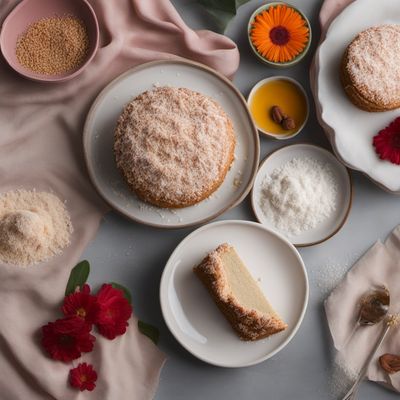
Ingredient
Cream cake
Indulgent Delight: Cream Cake
Cream cake typically consists of layers of sponge cake or butter cake that are filled with various types of cream, such as whipped cream, pastry cream, or buttercream. The cake is often frosted with additional cream and decorated with fruits, chocolate, or other toppings. Cream cakes come in a variety of flavors and styles, offering a wide range of options for dessert lovers.
Origins and history
The origins of cream cake can be traced back to Europe, where it gained popularity in the 18th and 19th centuries. Cream cakes were traditionally served at royal banquets and aristocratic gatherings, showcasing the wealth and culinary skills of the hosts. Over time, cream cakes became more accessible and are now enjoyed by people around the world as a delightful treat for special occasions.
Nutritional information
Cream cakes are a calorie-dense dessert due to the high content of cream, butter, and sugar. They should be enjoyed in moderation as part of a balanced diet.
Allergens
Cream cakes may contain allergens such as wheat, eggs, milk, and nuts. Individuals with allergies or dietary restrictions should check the ingredients list carefully before consuming cream cakes.
How to select
When selecting a cream cake, consider the freshness and quality of the ingredients. Look for cakes that are made with real cream and natural flavorings. Opt for cakes that are freshly baked or made to order for the best taste and texture. It is also important to store cream cakes properly to maintain their freshness and prevent spoilage.
Storage recommendations
To maintain the freshness and quality of cream cakes, they should be stored in a cool and dry place, away from direct sunlight. If the cake has a perishable filling, such as whipped cream, it should be refrigerated. It is recommended to consume cream cakes within a few days of purchase or preparation to ensure optimal taste and texture.
How to produce
Producing a cream cake requires advanced baking skills and knowledge of pastry techniques. It is best left to professional bakers or experienced home bakers who are familiar with cake assembly, filling preparation, and frosting techniques. However, amateur bakers can start by practicing basic cake recipes and gradually move on to more complex cream cake recipes.
Preparation tips
Cream cakes can be enjoyed as a standalone dessert or served with a scoop of ice cream or a dollop of whipped cream. They are perfect for birthdays, weddings, anniversaries, and other special occasions. Cream cakes can also be customized with different flavors, fillings, and decorations to suit personal preferences and themes.
Culinary uses
Cream cakes are commonly used as celebratory desserts in various cultures around the world. They are a staple in European pastry shops and are often associated with afternoon tea or elegant gatherings. Cream cakes are also popular in North America, where they are enjoyed as birthday cakes or wedding cakes.
Availability
Cream cakes are widely available in bakeries, pastry shops, and cake boutiques around the world. They can also be ordered online or made at home using cake recipes and cream fillings.


